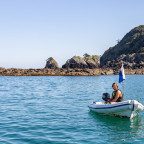New Zealand: Biology
New Zealand
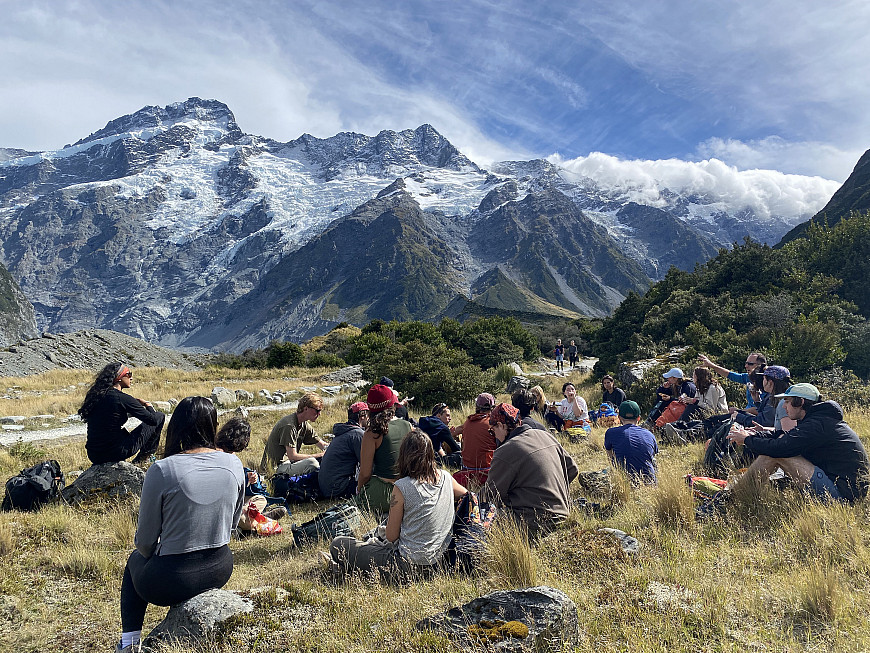
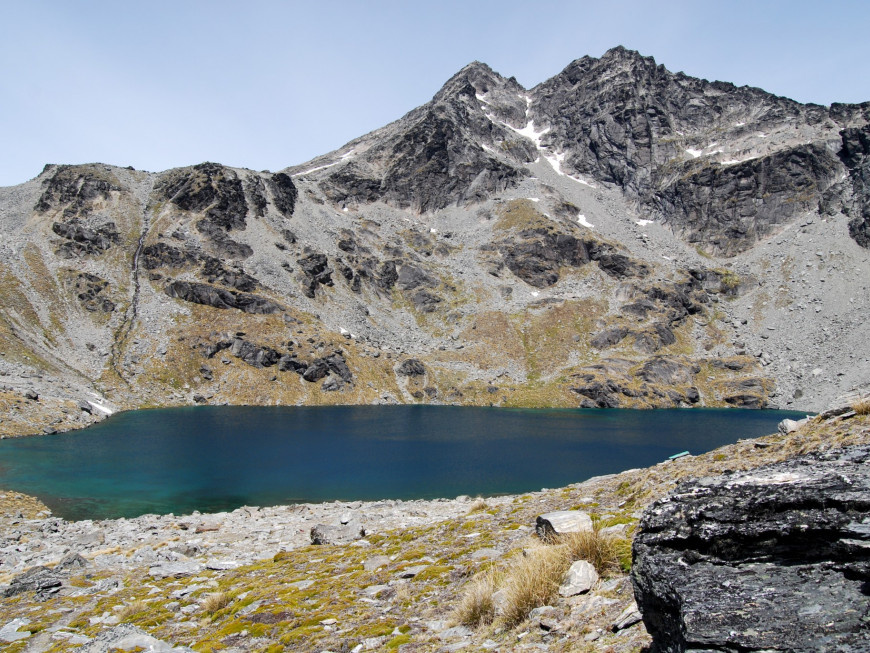

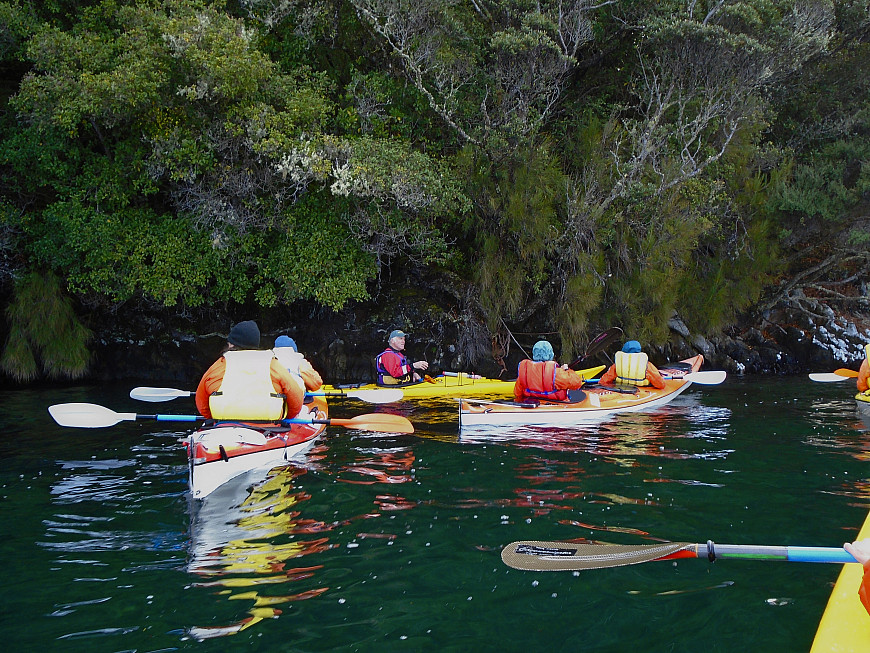
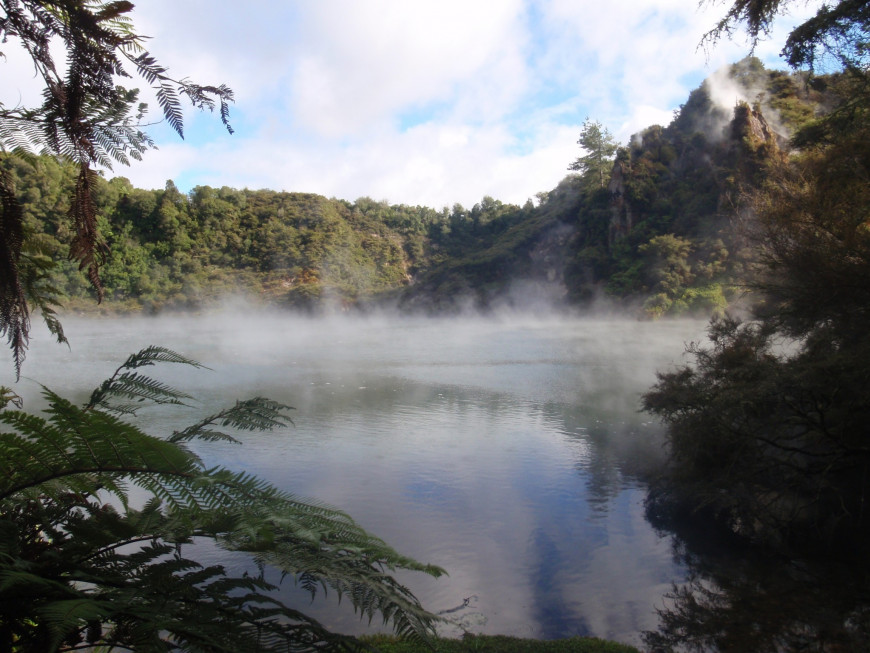
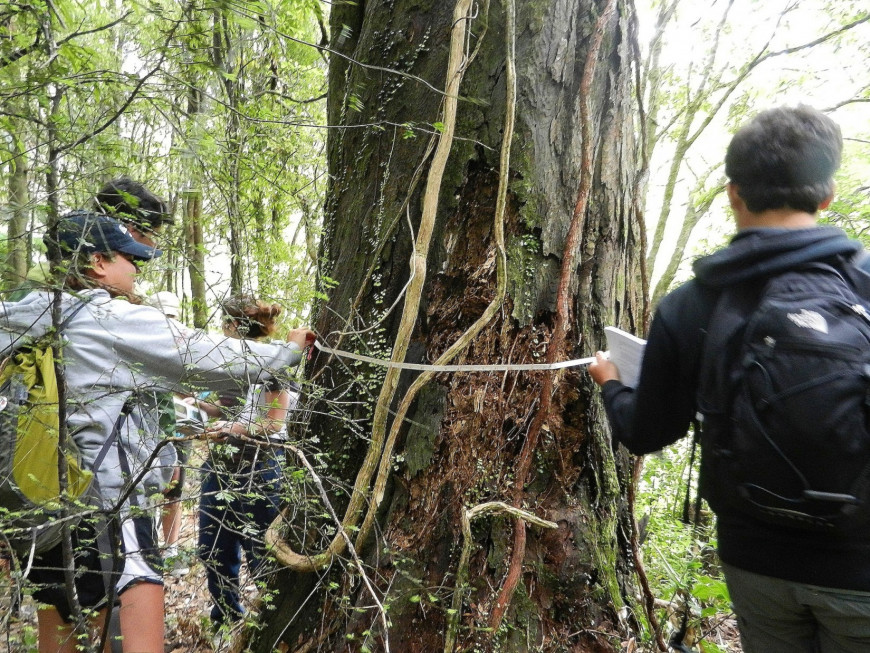
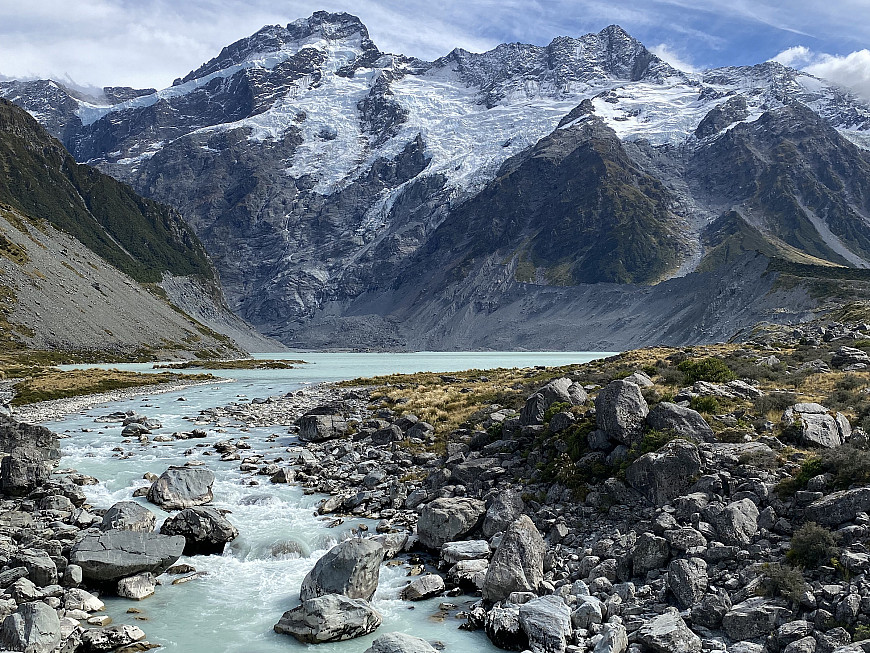
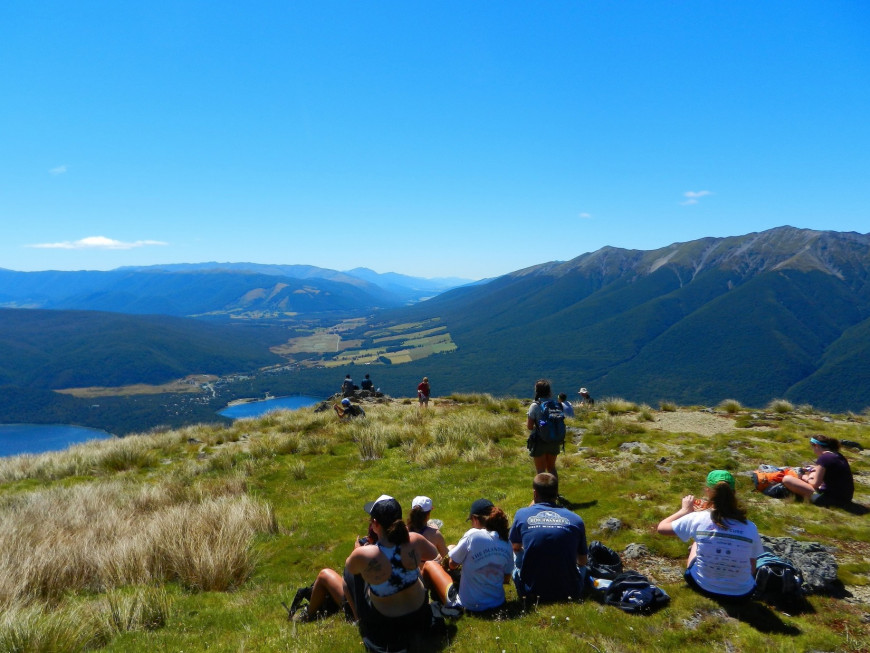
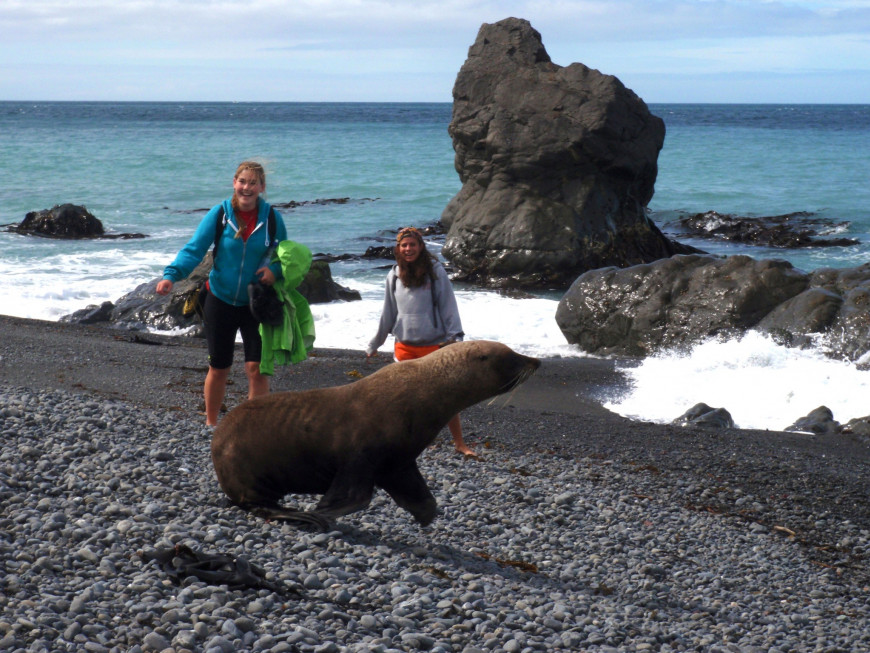
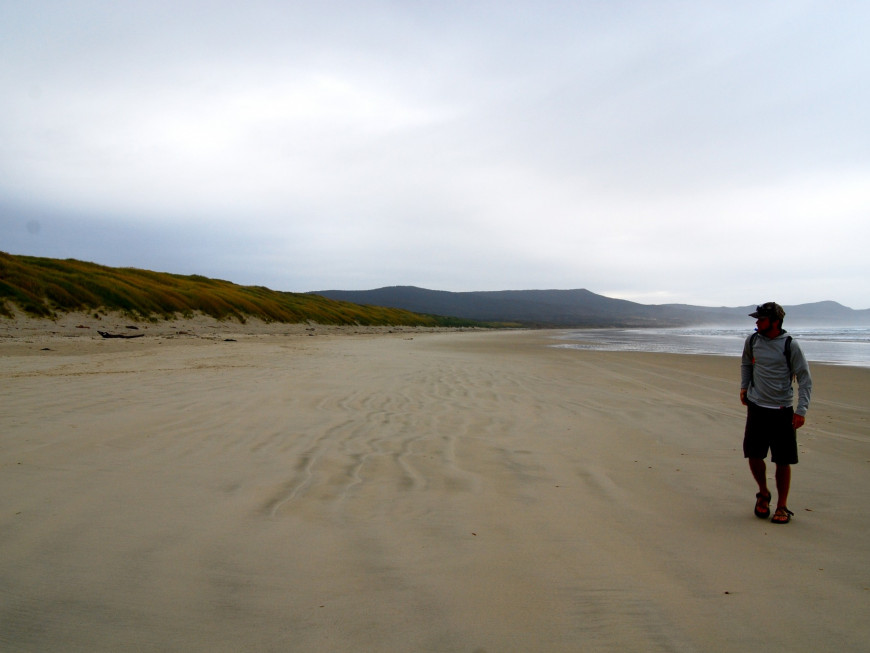
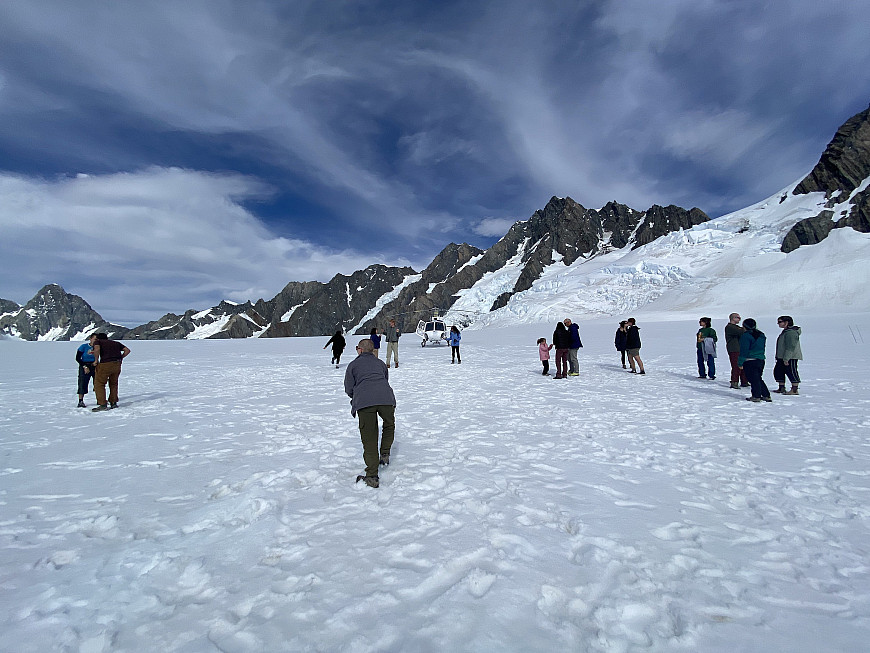
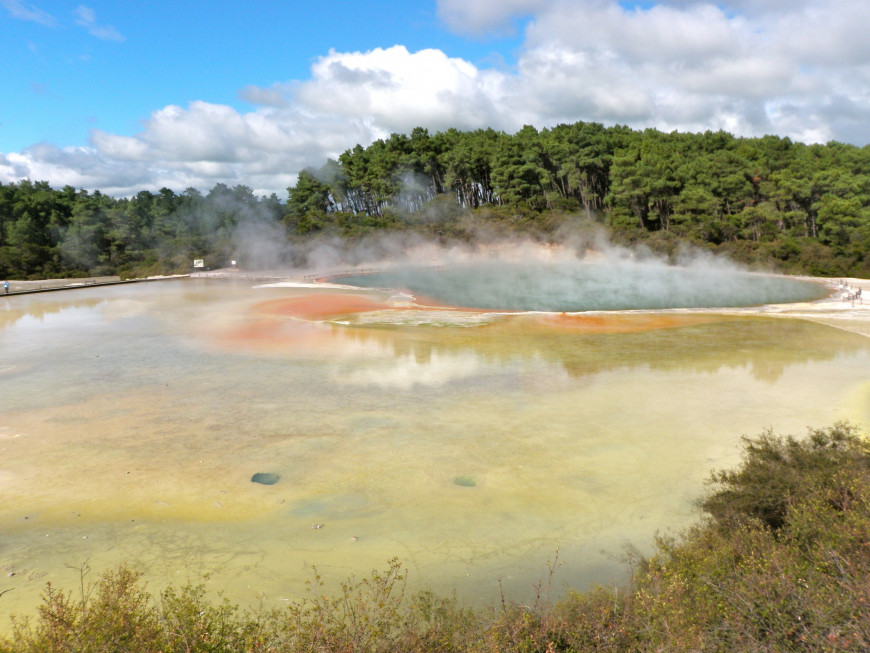


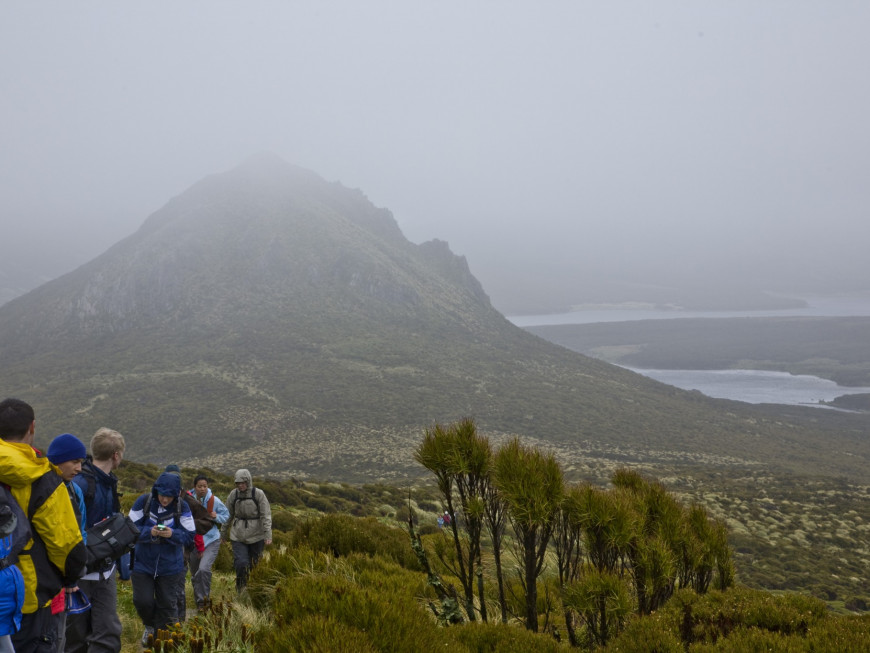

| Program Snapshot | |
| Semester: | Spring |
| Offered: | Spring 2026 |
| Estimated Dates: | Early January to mid-April |
| Program Focus: | Regional Area Study with Biology Emphasis |
| Prerequisites: | BIO 110, 201, and 202 and all prerequisites associated with those courses. Students must satisfy the Words and Numbers CORE requirement before participating in an overseas program. |
| Spring 2026 Program Leader |
Greg Hermann, Professor of Biology, hermann@lclark.edu, 503-768-7568 |
Program Design
The interplay of isolation, colonization, and extinction in islands is a common theme in cultural, historical, and biological studies. As a “lost” part of the ancient Gondwonan super-continent, New Zealand has a rich biological and cultural history that exemplifies the theme of isolation and repeated colonization. The program focuses on both the cultural and biological nuances of this unique location, and will offer Lewis & Clark Biology majors the opportunity to make progress towards departmental requirements while overseas.
Students will benefit from the opportunity of experiencing a unique culture and by gaining a thorough understanding of sociopolitical issues and the biology of both islands. The goal will be to experience another culture, while participating in a rigorous program of scientific merit. Students with majors from throughout the College are encouraged to apply, however the program is designed especially for Biology and Environmental Studies majors who have completed the core Biology classes (110, 201, 202).
About Greg Hermann, Faculty Leader:
My goal as a teacher is to help my students become confident, creative, and critical thinkers. I believe that the way biology is taught and learned should reflect the way it is done. This means that I teach biology as a method for recognizing and documenting interesting phenomena, generating ideas about how the biological world works, proposing and carrying out experiments that test ideas, critically evaluating data, and skillfully presenting and communicating data and what it means. Consequently, my courses emphasize the ideas, experiments, results, and reasoning that have led to a currently accepted model.
From my experience leading multiple Lewis & Clark College Overseas Programs I have seen the effectiveness of hands on, interactive, and exploratory learning opportunities that emerge from focused studies in, and of, a new place. Beyond the science courses that are part of these programs, there is tremendous value in exploring and learning about the connections between biology and society, whether it be through the lens of conservation, cultural history, social beliefs, politics, or religion. The sum of experiences students have on Overseas Programs are so much more than the individual parts! Consequently, one of my roles as the leader of the program is to support and propel students toward deep and meaningful experiences that will challenge and potentially change how they view and interact with the world.
I joined the faculty of Lewis & Clark College in 2001 and I am a Professor of Biology. I teach courses in cell biology, developmental biology, and genetics, and my research program is focused on how cells construct their intracellular compartments. I have an active research program deeply involving Lewis & Clark College undergraduates in studies funded by grants from the National Science Foundation and the National Institutes of Health. In my free time I enjoy going out to hear live music, spinning vinyl, running, cooking, and hiking.
Academics
Requirements Fulfilled:
General Education - This program fulfills the Global Perspectives general education requirement for students who successfully complete 8 or more semester credits.
IS 295 fulfills the Culture, Power, and Identity general education requirement.
Major / Minor Requirements - The Biology courses may be counted towards the BIO major.
Credits: 17 credits (4 courses)
Curriculum:
IS 294: Cultural Ecology of New Zealand (4 credits)
Overview of New Zealand’s approach to the conservation of its indigenous biota. Lecture-based material will cover New Zealand’s policy and planning approach, provide examples of conservation practice focused on single endangered species, outline the increasing importance of landscape restoration, and discuss challenges to the conservation ethic arising from unsustainable human resource use and short-term economics. Field visits to sites of active conservation management will demonstrate a wide range of practices and a diversity of conservation ambition. Presentations at field sites by people doing the conservation work will emphasize the diversity of conservation action undertaken in New Zealand.
IS 295: Repeated Colonization, a History of New Zealand (4 credits)
Emphasis on original colonization by Polynesians, and secondary colonization by Europeans. Effect of history on the political system, present-day economy, and the environment. Will cover pre- European history, current government and legislative processes, health, education, and other services, New Zealand’s current role in the international community.
BIO 377: Physiological Ecology of New Zealand Flora and Fauna (4 credits)
Physiological ecology is the study of mechanistic interactions between physiology and the physical environment (e.g. temperature, humidity, oxygen tension). The unique evolutionary history of New Zealand (NZ) species adds the dimension of phylogenetic constraint to the study of physiological adaptation to the extreme environments found there. Global climate change, habitat loss, and invasion by introduced species bring relevance to the study of how NZ animals and plants interact with their environment, and how their evolutionary history has constrained them to adapt in particular (and peculiar) ways.
BIO 410: Biogeography & Evolution in New Zealand (5 credits)
Continental drift is one of the most revolutionary ideas in the history of science. Drift was not universally accepted by the mainstream scientific community in the 1970s, and its implications have still not been fully integrated in our understanding of patterns of distribution of species (biogeography). Prior to the drift hypothesis, dispersal across large distances, and over significant barriers, was the principle hypothesis for all patterns of biogeography. In contrast, the model of continental drift provides a mechanism of vicariance, a process that divides the range of a species by imposing a barrier to dispersal. BENZ will explore how New Zealand’s natural history has evolved to be so different from that found on continental landmasses, yet shares remarkable similarities with parts of South America and ancient Antarctica. Lectures will focus on 1) New Zealand’s geological origin, 2) basic principles of historical biogeography and 3) island ecology, 4) the evolution in isolation of New Zealand’s flora and fauna, and 5) special vulnerabilities as a consequence of introductions of exotic biota by humans. Field trips will give hands-on experience with native plants and animals, and demonstrate principles covered in the lectures.
Cost
2026-2027 Fee Breakdown*
Total Fee (includes Tuition, Program Fee, and Health & Wellness Fee): $44,791
Tuition: $35,329
Program Fee: $9,425
Health & Wellness Fee: $37**
Included in the program fee are room/housing, board/meals, and administrative fees. Not included are airfare, passport and visa expenses, primary insurance coverage, photographs, books, immunizations, and incidentals. *Fees are updated every February for the following academic year.
**The Health & Wellness Fee supports the operations of Wellness Services staff in delivering pre-program orientation services, as well as in providing health-related consultation regarding participant health needs. All students in the College of Arts and Sciences pay a mandatory fee of $37 per semester.
Stipend: Students will receive a stipend to cover the cost of meals and transportation costs not covered by the program fee.
Estimated Airfare (Round Trip PDX to AKL): $1,200 - $2,000
Estimated Travel Document Fees: $200-300
Estimated Health Insurance Fee: $1,906
All students participating in overseas programs are automatically enrolled in iNext, a supplemental travel insurance program. The fee for iNext is covered in the program cost. However, students are also required to have comprehensive health insurance during their time abroad. All students participating in overseas programs, both abroad and domestic, are automatically enrolled in the College’s student health insurance program. Similar to a regular semester on-campus, students participating in overseas programs may waive enrollment in the student health insurance program if they have other comprehensive health insurance (e.g., through a parent, guardian or employer) that 1) provides coverage for them in the geographic region in which they will be studying and 2) includes mental health benefits. Find more information regarding health insurance & overseas programs.
Program Preparation
Application Process: Applications are due one year before the start of the program. The semester before the program, students who have been accepted into the program will meet with the group and the program leader regularly
Learn more about our application process.
Travel: Students usually fly into the Auckland airport (AKL), where they meet the group and travel together to their next destination.
Visa: Students will be required to apply for a visa in order to participate in this program. More information will be provided upon admission to the program.
Country-Specific Health Information: View specific health information for people traveling to New Zealand.
State Department Country Information: Visit the State Department’s New Zealand page.
Wellington, New Zealand
Blog Posts
Kina: The Unlikely Terror
Te Reo with Ev!
Overseas and Off-Campus Programs is located in room 206 of Albany Quadrangle on the Undergraduate Campus.
MSC: 11
email overseas@lclark.edu
voice 503-768-7295
fax 503-768-7300
Director Blythe Knott
Overseas and Off-Campus Programs
Lewis & Clark
615 S. Palatine Hill Road
Portland OR 97219

